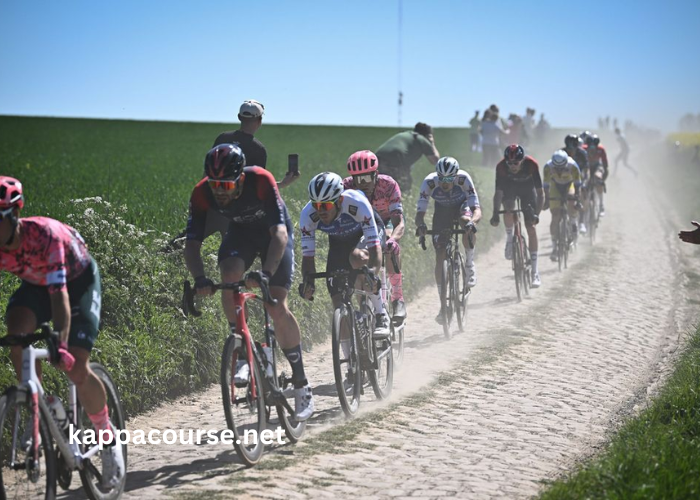Sports have long captured the human imagination. From ancient times to the modern era, athletic feats have been celebrated as expressions of human potential, physical prowess, and the relentless pursuit of excellence. Athletes push their bodies to the limits, competing not only against others but also against themselves, in search of victory, records, and personal growth. This article delves into the world of athletic feats, exploring the triumphs and challenges that define this captivating arena.
The Drive for Athletic Triumph
Athletic triumphs are the pinnacle of human achievement in the sporting world. These feats encapsulate years of dedication, grueling training regimens, and an unwavering commitment to excellence. From sprinting to swimming, and from team sports to individual disciplines, athletes continually redefine the boundaries of what the human body can achieve.
Breaking Records
One of the most exhilarating aspects of the sporting world is witnessing records being shattered. Records serve as benchmarks of human capability, and breaking them is a testament to an athlete’s unparalleled skill and determination. Consider the world of track and field, where the 100-meter sprint record has been a coveted symbol of speed for generations. Usain Bolt’s electrifying run in 2009, covering the distance in 9.58 seconds, stunned the world and set a new standard for sprinters to chase.
Swimming, too, has witnessed remarkable feats. Michael Phelps, with his record 23 Olympic gold medals, showcased the potential of the human body in the water. His dominance extended across multiple Olympic Games, making his achievements even more remarkable.
Iconic Moments
Athletic triumphs often manifest in iconic moments that are etched into the collective memory of sports enthusiasts. These moments transcend the boundaries of the sporting arena and become part of the broader cultural lexicon. One such moment is the “Miracle on Ice” in the 1980 Winter Olympics when the U.S. hockey team, comprised of amateur and collegiate players, defeated the formidable Soviet team. The victory wasn’t just about sports; it was a symbol of the Cold War era and a testament to the power of determination and teamwork.
Similarly, the “Rumble in the Jungle” boxing match between Muhammad Ali and George Foreman in 1974 showcased Ali’s tactical genius and resilience as he defeated the heavily favored Foreman to regain the heavyweight title. This fight was more than just a boxing match; it was a statement about defying the odds and standing up to challenges.
The Challenges Athletes Face
While athletic triumphs are celebrated, they often come at a steep cost. Athletes face numerous challenges in their quest for excellence, both on and off the field. These challenges can be physical, mental, and even societal.
Physical Challenges
The physical demands placed on athletes are immense. Training regimes are grueling, often involving hours of repetitive drills, rigorous workouts, and enduring physical pain. The risk of injuries looms constantly. Injuries can not only hamper an athlete’s performance but can also jeopardize their entire career.
Consider the case of gymnastics, where athletes perform intricate routines that push the boundaries of flexibility and strength. Simone Biles, one of the greatest gymnasts of all time, withdrew from the 2020 Tokyo Olympics citing mental health concerns. Her decision to prioritize her well-being over competition underscored the mental and physical toll that elite athletes endure.
Mental Strain
The mental challenges that athletes face are equally significant. The pressure to perform at a high level consistently, the scrutiny from the media and fans, and the fear of failure can take a toll on an athlete’s mental health. The “yips” in golf, the “butterflies” in the stomach before a crucial match, and the mental fatigue from constant training are all part of an athlete’s experience.
Overcoming mental barriers can be as challenging as conquering physical ones. Athletes often work with sports psychologists to develop mental resilience and coping strategies. The mental aspect of sports is increasingly recognized as a critical component of success.
Societal Expectations
Society places high expectations on athletes, often expecting them to be role models and representatives of their countries or communities. This added pressure can be overwhelming. Athletes are expected to exhibit exceptional behavior both on and off the field, and any misstep can lead to public scrutiny and even career consequences.
The social media age has amplified these pressures, with athletes facing constant online scrutiny. Cyberbullying and harassment have become prevalent issues, affecting the mental health of athletes and highlighting the need for mental health support in the sporting world.
Triumph Over Adversity
Athletes often become symbols of triumph over adversity. Their stories of perseverance in the face of physical and mental challenges inspire millions around the world.
The Paralympics
The Paralympic Games, which run parallel to the Olympic Games, celebrate the triumph of athletes with physical disabilities. These athletes overcome profound challenges to compete at the highest level of their respective sports. Their achievements demonstrate the indomitable human spirit and serve as a powerful reminder that disability does not equate to inability.
One notable Paralympian is Oscar Pistorius, a South African sprinter with double-leg amputations who competed using prosthetic blades. Pistorius not only competed in the Olympics alongside able-bodied athletes but also made history as the first double amputee to participate in the Paralympics. His achievements highlighted the power of determination and the potential for triumph over adversity.
Athletes as Advocates
Many athletes use their platform to advocate for social and humanitarian causes. They leverage their fame and success to bring attention to issues that matter to them, from racial justice and gender equality to environmental conservation and education.
For example, Colin Kaepernick, a former NFL quarterback, knelt during the national anthem to protest racial injustice and police brutality in the United States. His actions sparked a nationwide conversation and led to widespread debates about the role of athletes in advocating for social change. Kaepernick’s willingness to take a stand, despite the personal and professional risks, exemplifies the power of athletes as advocates for a better world.
The Role of Technology
Technology has played a pivotal role in the evolution of athletic feats. Advancements in equipment, training techniques, and data analysis have revolutionized sports and pushed the boundaries of human performance.
Equipment and Gear
In many sports, the right equipment can make a significant difference in an athlete’s performance. Consider the evolution of running shoes. From basic leather shoes to modern, lightweight, cushioned designs with advanced materials, shoes have become a crucial factor in achieving record-breaking times in distance running events. Similarly, advancements in materials have improved the performance of tennis rackets, golf clubs, and swimming suits, giving athletes a competitive edge.
Data and Analytics
Data and analytics have become integral to sports performance. Athletes and coaches utilize data from wearables and sensors to track performance metrics like heart rate, speed, and distance covered. This data-driven approach allows for precise training regimens, injury prevention, and strategic decision-making during competitions.
Furthermore, video analysis has become a staple in coaching. Coaches can break down an athlete’s performance frame by frame, identifying areas for improvement and refining techniques. This level of scrutiny and analysis was unheard of in previous generations, highlighting how technology has transformed sports training and performance assessment.



